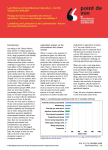Nagy T.M.G., Soós A. (2025). Land sharing and land sparing in agriculture - Can we change our attitudes? Eurochoices, 01/04/2025, vol. 24, n. 1, p. 43-49.
https://doi.org/10.1111/1746-692X.12459
https://doi.org/10.1111/1746-692X.12459
| Titre : | Land sharing and land sparing in agriculture - Can we change our attitudes? (2025) |
| Auteurs : | T.M.G. Nagy ; A. Soós |
| Type de document : | Article |
| Dans : | Eurochoices (vol. 24, n. 1, April 2025) |
| Article en page(s) : | p. 43-49 |
| Langues : | Anglais |
| Langues du résumé : | Anglais ; Français ; Allemand |
| Catégories : |
Catégories principales 04 - DEVELOPPEMENT LOCAL ET REGIONAL ; 4.2 - FoncierThésaurus IAMM TERRE AGRICOLE ; RESSOURCE FONCIERE ; GESTION DU SOL ; GESTION FONCIERE ; PRATIQUE CULTURALE |
| Résumé : | Land sharing and land sparing are the methods by which farmers can contribute to the protection of the environment and conserve biodiversity, as well as alleviating the impact of climate change and extreme weather events. However, these can reduce production, which have often been achieved through intensive monoculture farming causing long-term damage to the fertility and structure of the soil. Preservation of biodiversity and the improvement of soil quality increases crop security and the long-term profitability of farming, while improving the social perception of farmers. Many countries provide subsidies and impose regulations that encourage sustainable agricultural practices, including land fallowing. In this respect, we discuss the concepts of land sharing and land sparing. We outline the potential environmental and social benefits of fallowing agricultural land and restoring natural ecosystems, using concrete examples in European and other countries. We think that it is possible to farm land differently but that would require strong regulations. Tax incentives, research and development subsidies, and programmes for the use of renewable energy sources could also provide positive incentives. Context is crucial and more research is needed to establish whether land sharing or land sparing are the best practices to contribute to sustainable agriculture and ensure a healthy environment for future generations. |
| Cote : | Réservé lecteur CIHEAM |
| URL / DOI : | https://doi.org/10.1111/1746-692X.12459 |







